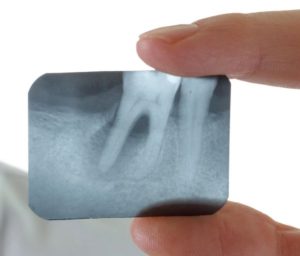Root Canal Therapy
Root canal therapy is a necessary process to treat and restore a tooth that has a pulp infection and prevent it from future infections.
Each tooth contains a pulp cavity that consists of blood vessels, nerves, and other tissues that transgresses to the rest of the body through root canals. This pulp cavity serves many purposes, one of which is to nourish the tooth and surrounding tissues with nutrients.
When the pulp becomes irreversibly infected, root canal therapy is highly encouraged to stop the progression of the infection while preserving the structure of the tooth (as an alternate to a tooth extraction). Pulp infections are secondary in nature and are often caused by prolonged effects of primary infections such as dental caries (cavities) or physical/thermal trauma.
Common symptoms for a root canal treatment:
- Severe toothache when chewing or applying pressure on the tooth
- Prolonged sensitivity (more than a few minutes time) to temperature
- Darkening of the tooth
- Swelling and tenderness of the gum tissues
- A “pimple,” or abscess on the gum that contains blood or pus when popped
During the root canal therapy, a small hole is drilled from the top of the tooth into the pulp cavity. The infected tissue, pulp, and nerve are then removed, and the chamber(s) is/are cleaned and disinfected. The canals are then immediately sealed off and medicated to prevent future infections. The small hole is then temporarily filled until a customized crown is fabricated as a permanent seal.
